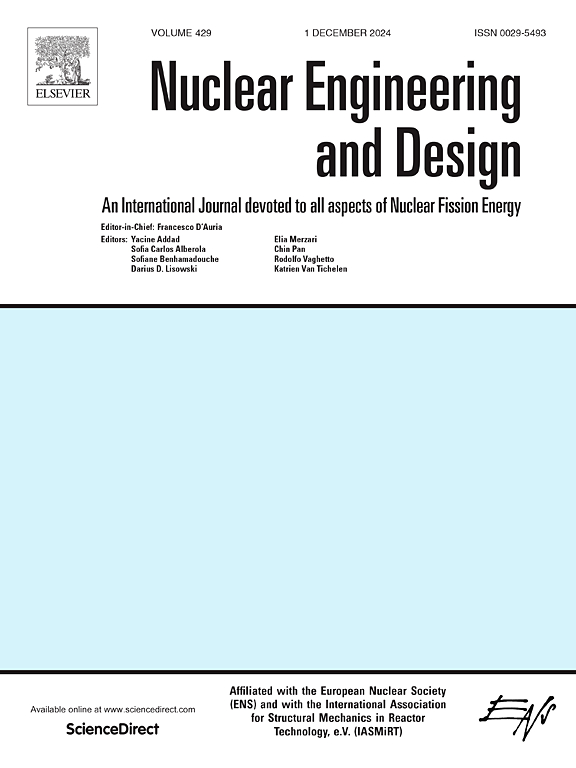核废料制氢:方法、优势和未来展望
IF 2.1
3区 工程技术
Q1 NUCLEAR SCIENCE & TECHNOLOGY
引用次数: 0
摘要
随着全球对可持续和清洁能源需求的增加,氢已成为一种有前途的能源载体。利用核废料是一种生产氢的新方法,将一个持续存在的环境问题转化为有用的资源。本文全面回顾了通过有效利用核废料生产氢的创新方法。在现有研究的基础上,发现核废料可以通过多种先进的方法,包括催化强化电解、甲烷重整和热化学循环,显著增强氢的生成。其他有前途的技术包括辐射增强电解电池,将放射性废物送入加热器产生电力,为电解电池供电,辐射分解和液体等离子体光催化。这些技术有几个优点,包括减少放射性废物的数量,降低长期储存的要求,并提供稳定的氢供应。此外,这些方法的局限性和挑战也得到了深入的探讨,包括合成气污染的风险、催化剂的化学改性以及阻碍该领域研究进展的严格法规。本文章由计算机程序翻译,如有差异,请以英文原文为准。
Nuclear waste for hydrogen production: methods, advantages, and future perspectives
Hydrogen has become a promising energy carrier as the need for sustainable and clean energy sources increases globally. Utilizing nuclear waste is a novel method of producing hydrogen that transforms a persistent environmental issue into a useful resource. The present work provides a comprehensive review of innovative approaches for hydrogen production through the effective utilization of nuclear waste. Based on the existing research, it was found that nuclear waste can significantly enhance hydrogen generation through a variety of advanced methods, including catalyst-enhanced electrolysis, methane reforming, and thermochemical cycles. Other promising techniques involve radiation-enhanced electrolysis cells, feeding radioactive waste into a heater to generate electricity for powering electrolysis cells, radiolysis, and liquid plasma photocatalysis. These techniques have several advantages, including lowering the amount of radioactive waste, lowering the requirement for long-term storage, and supplying a steady supply of hydrogen. Moreover, the limitations and challenges associated with these methods have been thoroughly explored, including the risk of syngas contamination, chemical modification of the catalyst, and stringent regulations that hinder research progress in this field.
求助全文
通过发布文献求助,成功后即可免费获取论文全文。
去求助
来源期刊

Nuclear Engineering and Design
工程技术-核科学技术
CiteScore
3.40
自引率
11.80%
发文量
377
审稿时长
5 months
期刊介绍:
Nuclear Engineering and Design covers the wide range of disciplines involved in the engineering, design, safety and construction of nuclear fission reactors. The Editors welcome papers both on applied and innovative aspects and developments in nuclear science and technology.
Fundamentals of Reactor Design include:
• Thermal-Hydraulics and Core Physics
• Safety Analysis, Risk Assessment (PSA)
• Structural and Mechanical Engineering
• Materials Science
• Fuel Behavior and Design
• Structural Plant Design
• Engineering of Reactor Components
• Experiments
Aspects beyond fundamentals of Reactor Design covered:
• Accident Mitigation Measures
• Reactor Control Systems
• Licensing Issues
• Safeguard Engineering
• Economy of Plants
• Reprocessing / Waste Disposal
• Applications of Nuclear Energy
• Maintenance
• Decommissioning
Papers on new reactor ideas and developments (Generation IV reactors) such as inherently safe modular HTRs, High Performance LWRs/HWRs and LMFBs/GFR will be considered; Actinide Burners, Accelerator Driven Systems, Energy Amplifiers and other special designs of power and research reactors and their applications are also encouraged.
 求助内容:
求助内容: 应助结果提醒方式:
应助结果提醒方式:


